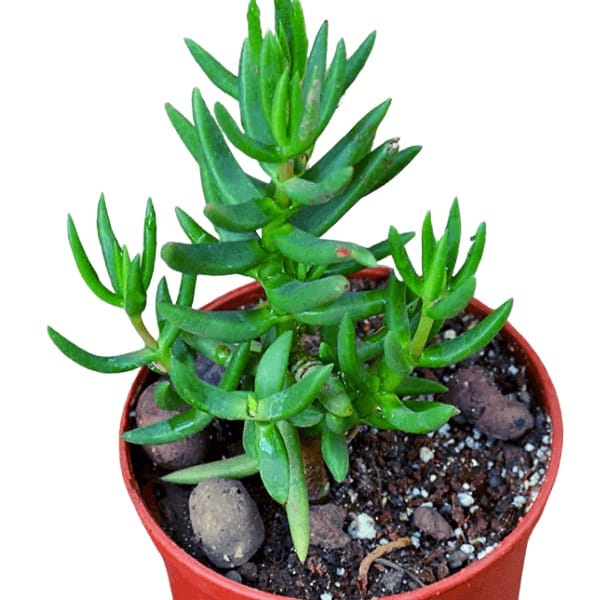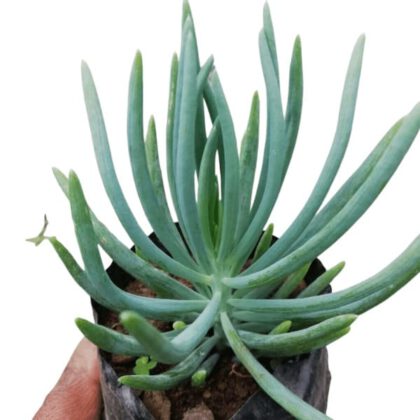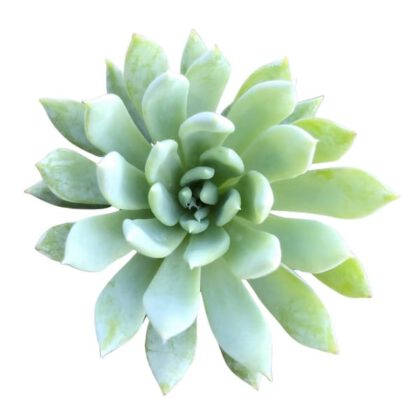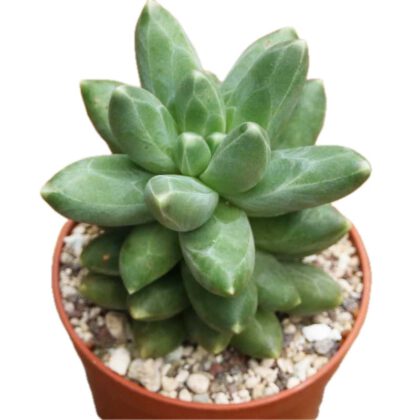Plant Care
- Light: Crassula tetragona thrives in bright, indirect sunlight to full sun. It prefers at least 4-6 hours of direct sunlight daily to maintain its compact, bushy form.
- Watering: Water thoroughly when the soil is dry to the touch. This succulent is drought-tolerant and prefers infrequent watering. Avoid overwatering to prevent root rot; allow the soil to dry out completely between waterings.
- Soil: Use a well-draining soil mix, such as a cactus or succulent mix. Adding perlite or coarse sand can improve drainage, which is essential for preventing root rot.
- Temperature: Crassula tetragona prefers temperatures between 60-75°F (15-24°C). It can tolerate cooler temperatures down to 40°F (4°C) but should be protected from frost.
- Humidity: This plant prefers low to moderate humidity. It is well-suited to dry indoor environments and does not require high humidity to thrive.
- Fertilization: Fertilize sparingly with a balanced, diluted fertilizer during the growing season (spring and summer). Excessive fertilization can lead to leggy growth.
- Container: Choose a container with drainage holes to prevent waterlogging. Shallow containers work well for this plant, allowing its roots to spread out naturally.
- Pruning: Prune to remove dead or damaged stems and to control the plant’s shape. Regular pruning encourages denser growth and helps maintain its attractive form.
- Propagation: Easily propagated from stem cuttings. Allow cuttings to callus for a day or two before planting in well-draining soil. Keep the soil slightly moist until roots develop.
- Pests: Generally pest-resistant, but occasionally susceptible to aphids or mealybugs. Treat infestations promptly with insecticidal soap or neem oil to prevent damage.
- Support: This plant does not require support. Its natural growth habit makes it ideal for use in rock gardens, container arrangements, and as a bonsai specimen.





